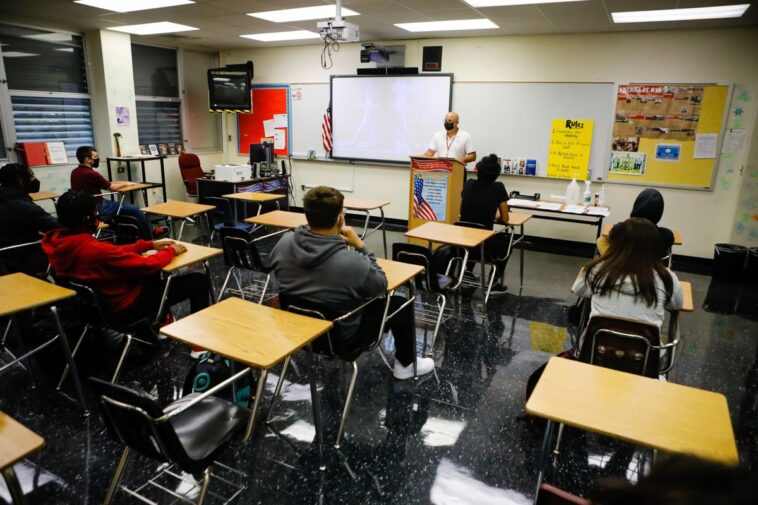A new Department of Education report says that nearly half of all public school students in the US who started the 2022-2023 school year are behind benchmarks.
The National Center for Education Statistics School Pulse Panel report, which came out on Thursday, shows that 49% of students are performing below grade level in at least one academic subject. This is up from the average of 36% in a typical year before the pandemic. With 1,026 public schools taking part, this year’s survey got the most responses ever.
The results help figure out how much the coronavirus pandemic has affected how well students do in public schools. As the number of Covid-19 cases rose quickly at the start of the pandemic, many schools switched to remote learning. The decisions that school administrators made about whether or not to stay open became a major political issue.
Private school transfers, homeschooling, & declines in school-age pop account for most of the big drop in US public school students during pandemic. But not all — unregistered homeschooling & kids who stopped attending may explain gap @patrick_wall reports https://t.co/MF7q2TLyM0
— Kalyn Belsha (@kalynbelsha) February 9, 2023
The report shows that most schools have kept or increased how much they use targeted learning strategies. One of these strategies focused on individual learning by using content from a new grade to teach ideas from a previous grade. According to the report, no schools have used these strategies less since June, and the learning recovery has been about the same as last year.
Also read: Donald Trump access to Facebook, Instagram restored
Peggy G. Carr, commissioner of the National Center for Education Statistics, said in a press release that went with the report, “Many students were behind grade level at the start of the current school year, even in core subjects like English and math.” “These numbers show that getting back on track in school will take time.”

English and math were the subjects where most public school students were behind by one or more grade levels. 99% of schools that said they had students who were behind grade level said they had students who were behind in these areas. At 80% of schools and 69% of schools, science and social studies came in last. NCES doesn’t have any information about how long it will take to recover yet, but it’s clear that a lot of academic progress has been lost since the pandemic.
Mark Schneider, director of the Institute of Education Sciences, said that the School Pulse Panel is a new and useful way to find out how the pandemic has changed the state of education. “NCES and IES are committed to collecting high-quality data to help shape education policy and improve practises in support of learning recovery.”




